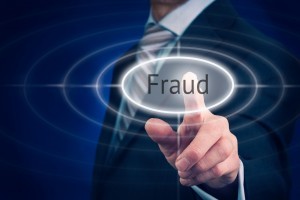Business Fraud Prevention – Why You Need a CFE
We recently conducted a risk assessment for a business owner, who seemingly appeared close to being defrauded. Money had been paid out, but fortunately this business owner sought assistance before committing more.
A second business executive reached out to us well after a deal with a “friend” went horribly wrong. On a problematic scale from 1 to 10, the score was an 11. Legions of extreme issues surfaced, which would have given Jimmy Hoffa pause.
These victims were not ill informed or uneducated. Both were clear minded, successful professionals. So, how were they disarmed? The answer, with subtlety.
Before we look at the details and declare it wouldn’t have happened to us, consider the case of Bernie Madoff. Madoff “turned away” investors in his massive Ponzi scheme. Closer to home, some fraudsters are family members, legitimately purchase goods and services, make donations to charity, buy dinners, are very personable and claim to be men of God.
In our first case, the business owner enters into a transaction with a company who has numerous consumer complaints, to say the least. Along comes a savior to the scene, who is supposedly a contractor for the company, expressing “concern” and “caution”. Our victim business owner is slowly ensnared as friendly conversations turn more and more personal. Often the savior provides truthful facts, easily confirmed, while our unsuspecting business owner provides more money. Fortunately, we were able to interdict in this matter, and the victim may be able to recover some or most of the money.
In the second case, our business executive doesn’t allow his “friend” into the primary business, but instead personally funds a project. The friend is quite likeable and convincing; however, after our executive loses money the truth pours out. The friend has a troubled past.
Business arrangements that go wrong may not meet the legal threshold of fraud; however, for the party who is short-changed, it can certainly feel that way. A Certified Fraud Examiner (CFE) is trained in the area of investigations, law, criminology and financial transactions. Our open minded skepticism looks for red flags that could hurt you. Decision making is not always so cut and dry; however, in the cases mentioned above we would have recommended to run the other way!
Due diligence often never enters the picture with long time acquaintances, friends, church or chamber of commerce members. Even if fraud is not intended, select a CFE as an objective party to review your situation. Factors can be uncovered, which at the least make you more informed. At most they can prevent severe harm and catastrophic loss.
Zane Kinney, CFE, PI
Principal Consultant
Astinel Security & Forensics
info@astinel.com
Click Here For Information on CFE’s

